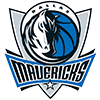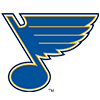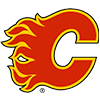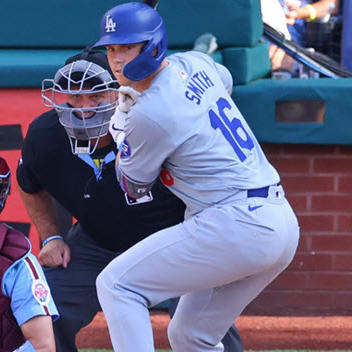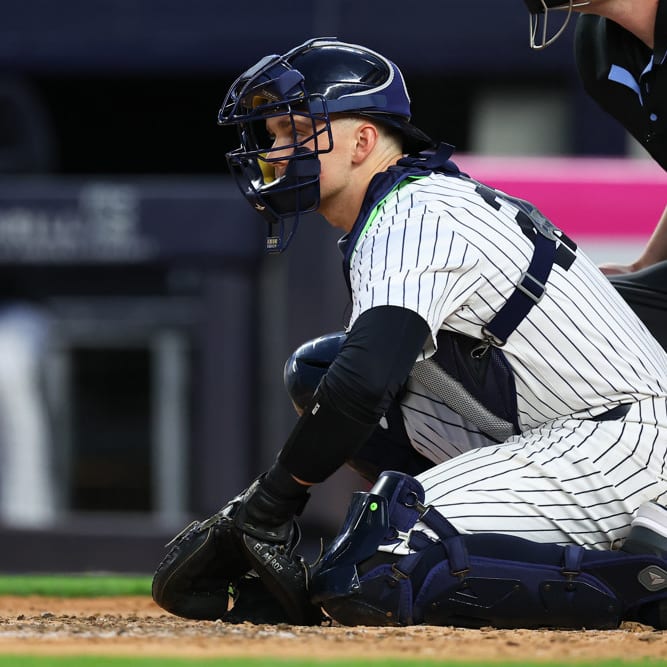Alfredo Aceves was a pitcher I warned everyone about when he assumed the closing role early in the year for the Red Sox. I looked smart in April when he had a 10.29 ERA and 2.00 WHIP, but over the next three months he performed well. However, he tanked, and I mean went into the gutter and rolled around with the muck smearing it all over every crevice of his body, in August and September in two of the worst months of relief pitching that you will ever see. In 24 outings he posted an ERA of 8.89, a WHIP of 1.60 and he lost four games while blowing three more save chances. Overall he finished the year with 25 saves but boy did you pay a dear price for them as he had a 5.36 ERA, 10 loses and eight blown saves.
On the flip side of Aceves' failure, we have the excellence of Grant Balfour. The A's early season closer, he struggled and was removed from the role. After a few other options failed (think Brian Fuentes and the Ryan Cook experiment that worked for a while before a speed bump was hit), Balfour proceeded to rack up a team leading 24 saves with a 2.53 ERA and 0.92 WHIP on the year. He also struck out 72 batters in 74.2 innings. Balfour blew only two save chances, none after April 29th, and over his last 33 outings he posted a 1.71 ERA, 0.76 WHIP, held batters
Alfredo Aceves was a pitcher I warned everyone about when he assumed the closing role early in the year for the Red Sox. I looked smart in April when he had a 10.29 ERA and 2.00 WHIP, but over the next three months he performed well. However, he tanked, and I mean went into the gutter and rolled around with the muck smearing it all over every crevice of his body, in August and September in two of the worst months of relief pitching that you will ever see. In 24 outings he posted an ERA of 8.89, a WHIP of 1.60 and he lost four games while blowing three more save chances. Overall he finished the year with 25 saves but boy did you pay a dear price for them as he had a 5.36 ERA, 10 loses and eight blown saves.
On the flip side of Aceves' failure, we have the excellence of Grant Balfour. The A's early season closer, he struggled and was removed from the role. After a few other options failed (think Brian Fuentes and the Ryan Cook experiment that worked for a while before a speed bump was hit), Balfour proceeded to rack up a team leading 24 saves with a 2.53 ERA and 0.92 WHIP on the year. He also struck out 72 batters in 74.2 innings. Balfour blew only two save chances, none after April 29th, and over his last 33 outings he posted a 1.71 ERA, 0.76 WHIP, held batters to a .131 mark and racked up 40 Ks in 31.2 innings (an 11.37 K/9 mark). He was money. Back to Cook for a second before we move on. Cook had a dynamic season with more than a K per inning (80 in 73.1), a 2.09 ERA, 0.94 WHIP, 14 saves and 21 holds. After a rough run just after the All-Star Break that saw him allow nine runs over seven outings (he somehow accrued four blown saves in that time), he pitched lights out allowing a run in only one of his final 20 outings.
Fifteen relievers saved at least 30 games in 2012 (Tom Wilhelmsen and Addison Reed just missed out with 29). One had an ERA under one (Fernando Rodney at 0.60) and one had an ERA over four (John Axford at 4.67). Four had a WHIP below one (Craig Kimbrel at 0.65, Rodney at 0.78, Aroldis Chapman at 0.81 and Jason Motte at 0.92) while one had a mark over 1.30 (Axford again at 1.44). Axford was also the only name on the list with nine blown saves though Motte and Rafael Bentancourt both had seven blown saves. Only one pitcher in the game had 30 saves and 10 holds, and that was Tyler Clippard who had 32 saves and 13 holds for the Nationals.
Jim Johnson led baseball with 51 saves and there have now been only 12 seasons of 50 saves in the history of the game. The ratios were impressive – a 2.49 ERA and 1.02 WHIP – but I'm still not completely sold on this skill set. Johnson had the best year of his career, even if you remove the saves, despite a mere 5.37 per nine K mark. He does a great job limiting the walks, no more than 2.08 per nine any of the past three years, and that sinking fastball is tough as all get out to lift (see his 61+ percent ground ball rate the past two years). Still, this is not a dominating skill set (hello Derek Lowe), and there really wasn't any growth in 2012 compared to his previous seasons. Be wary of a 2013 repeat.
I told everyone this year that Brandon Morrow was my breakout star on the hill. He was with a 2.96 ERA and 1.11 WHIP. Remember, this is a guy who owns a career ERA over 4.00 and one who has a WHIP of over 1.30. The only issue with Morrow's effort this year was the dreaded injury bug that limited him to 21 starts. Yes the Ks were down a bit at 7.80 per nine after two years over 10.00, but he "pitched" much better and that's what counts. Morrow has seen his walk total take a drastic tumble the past four years. Here are his per nine marks: 5.68, 4.06, 3.46 and 2.96. If he keeps the walks down below three, with his stuff, success will continue to follow.
BY THE NUMBERS
.305: The difference between the first half OPS (.543) and second half OPS (.848) of the Reds' Scott Rolen. How much of a shock is it to read that? Among third sackers with at least 175 plate appearances in the second half Rolen's OPS was 9th, better than guys like Chipper Jones (.797), Pedro Alvarez (.783), Alex Rodriguez (.764), David Wright (.750) and Pablo Sandoval (.720).
1: The number of homers Ian Kinsler needed to go 20/20 this year – he finished with 19 homers and 21 steals. Kinsler also scored 105 runs an appeared in 155 games for a second straight season. Too bad he's also hit .255 and .256 the past two years, but no matter given that his average the past two campaigns has been 26 homers, 26 steals, 114 runs and 75 RBIs.
1: The number of steals that Mike Trout needed to go 30/50. Eric Davis (37/50 in 1987) and Barry Bonds (33/52 in 1990) are the only players ever to hit those levels. Close on their heels were two other seasons. The aforementioned Eric Davis was three homers from a 30/80 season in 1986 and in that same season Rickey Henderson also just missed joining the 30/80 club when he went deep 28 times while stealing 87 bases.
1: The number of homers that Michael Saunders needed to go 20/20. He plays for the Mariners if you're having a hard time placing him right now. Saunders had 19 bombs and 21 steals for the club from Seattle in 139 games played. He struck out too much (132 times) and hit just .247 as a result. Still, his effort certainly looks a lot like the type of performances that a guy like Mike Cameron used to put up with regularity, and that ain't a bad thing.
1: The number of homers that Tony Campana failed to record this season. That's right – he didn't hit a single ball into the seats all year. He did manage to swipe 30 bases though, an impressive feat given his total of 192 plate appearances. Only three times in history has a player swiped 30 bags with less than 200 plate appearances – Campana, Lew Camp (30 steals and 176 plate appearances in 1893) and Larry Lintz (31 steals and four plate appearances in 1976 – he had only official at-bat).
2: The number of homers B.J. Upton needed to go 30/30 this year. A 20/20 performer in 2007 an a 40 steal performer from 2008-10, Upton went 20/30 last year (23 homers, 36 steals). So when is a five year low in steals (31) a good thing? When you also blast 28 homers.
2: The number of runs needed for Bryce Harper to record 100 in his first big league season. Harper scored 98 runs in 139 games played. Harper was also two steals from a 20/20 season (he went deep 20 times). In his first full season Mickey Mantle, the player Harper is often compared to, hit .311 with 23 homers, 94 runs and four steals in 142 games (Mantle appeared in 96 games as a 19 year hold hitting .267-13-65-61). Players just didn't run as much at the time, it wasn't part of the game (as odd as that hears).
15: The number of players who socked 40 or more doubles this season. Leading the way were Alex Gordon (51), Aramis Ramirez (50) and Albert Pujols (50). Gordon went deep 14 times, Ramirez 27 and Pujols 30.
24: The total number of homers hit by Mike Napoli in what was viewed as an abysmal season by most. However, that belief is belied by the track record of Napoli. From 2008-11 he hit at least 20 homers each year, but do you know what his average homer total was those four years? Twenty-four. Expectations can be a - - tch. As for his .227 batting average that was a career worst, but it was also the fourth season in seven years that he failed to hit .250. Expecting him to replicated that .320 mark from last year, when he's never had another season over .273, was always a foolish hope.
Ray Flowers can be heard daily on Sirius/XM Radio on The Fantasy Drive on Sirius 210 and XM 87, Monday through Thursday at 7 PM EDT and Friday's at 9 PM EDT. Ray's analysis can be found at BaseballGuys.com and his minute to minute musings can be located at the BaseballGuys' Twitter account.














